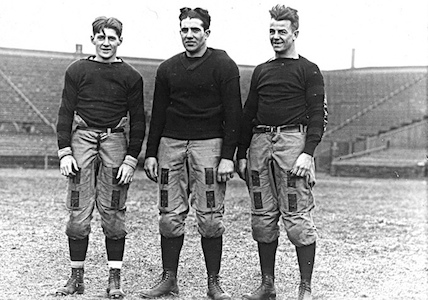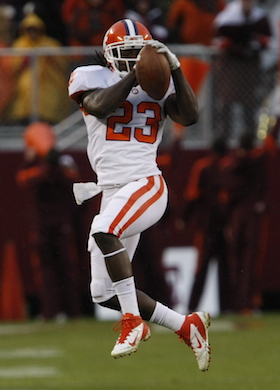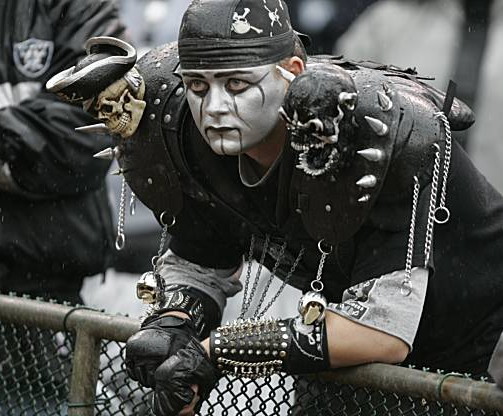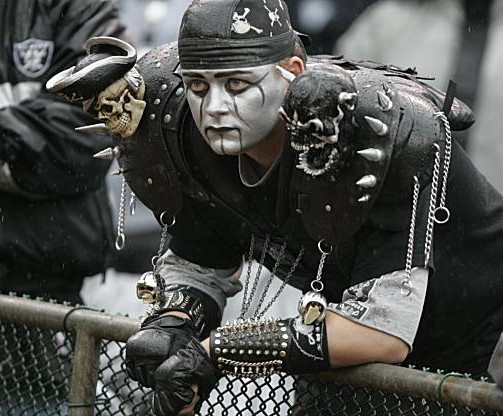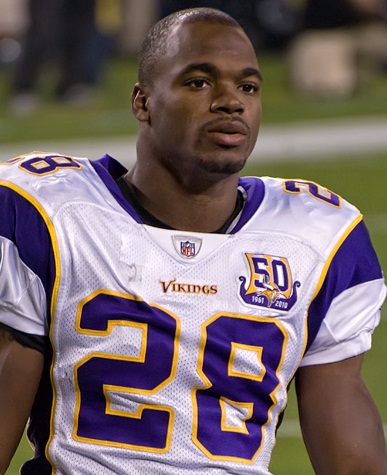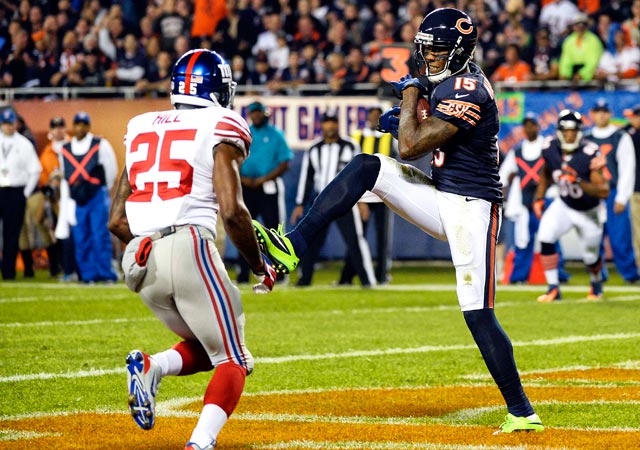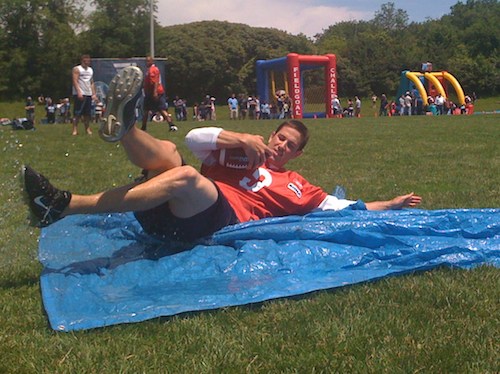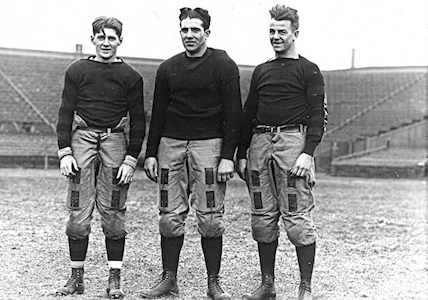 On Mondays during in the fall, the conversation is so dominated by NFL football that the expression “Monday morning quarterback” has entered the vernacular. The phrase is defined by Google as “a person who passes judgment on and criticizes something after the event.” With the popularity of fantasy football, we now have Monday morning quarterbacks talking about football from two different perspectives. We want you to be able to participate in this great tradition, so all fall we’ll be running NFL One Liners on Monday. Use these tiny synopses throughout the day:
On Mondays during in the fall, the conversation is so dominated by NFL football that the expression “Monday morning quarterback” has entered the vernacular. The phrase is defined by Google as “a person who passes judgment on and criticizes something after the event.” With the popularity of fantasy football, we now have Monday morning quarterbacks talking about football from two different perspectives. We want you to be able to participate in this great tradition, so all fall we’ll be running NFL One Liners on Monday. Use these tiny synopses throughout the day:
Week 3
SUNDAY, SEPTEMBER 21, AT 1:00 P.M. ET
San Diego Chargers 22, at Buffalo Bills 10
After beating the defending champion Seattle Seahawks last week, the Chargers went on the road and subdued the undefeated Buffalo Bills. Buffalo fans are up there in terms of nervous fan bases, so prepare to do some comforting if you’re friends with a Bills fan.
Line: The Chargers might be for real this year.
Baltimore Ravens 23, at Cleveland Browns 21
Heartbreak for the Cleveland fans after their team gave up a late lead to big-brother-rival Baltimore Ravens.
Line: Cleveland deserves good things after the way they’ve started this year. I hope this is a bump in the road, not a fall into the same old pit of despair.
Tennessee Titans 7, at Cincinnati Bengals 33
The Chargers might be for real, the Bengals ARE for real. This game was no contest. The Titans might as well have saved themselves the trip if it weren’t for the frequent flier miles they racked up. (NFL teams have chartered planes, there are no frequent flier miles.)
Line: The Bengals are for real.
Dallas Cowboys 34, at St. Louis Rams 31
The drama-drama-drama Cowboys went down 21-0 before stumbling back to a close victory over a team starting its third quarterback of the year.
Line: Sure, the Cowboys won, but they shouldn’t feel good about winning like that.
Green Bay Packers 7, at Detroit Lions 19
The Packers are normally the victor in games against the Lions but they weren’t able to keep their star quarterback, Aaron Rodgers upright consistently enough to win this week.
Line: Do we give the Packers too much respect on reputation? Maybe they’re not that good this year.
Houston Texans 17, at New York Giants 30
The heretofore horrible Giants took out their frustration on the undefeated Texans.
Line: In past years, the Giants have been like one of those horror movie villains that just won’t die. Can they pull it off again?
Indianapolis Colts 44, at Jacksonville Jaguars 17
The Jaguars are terrible. Our “good cop” was right though, we did see rookie quarterback Blake Bortles get his first NFL playing time in this game. He looked half-decent and has already been announced as next week’s starter.
Line: It’s Week 3 and the Jaguars are already playing for next year.
Minnesota Vikings 9, at New Orleans Saints 20
The Saints were desperate after losing their first two games and they showed it, jumping up to a 13 point lead and never really letting the Vikings back into the game.
Line: Okay, the Saints are back!
Oakland Raiders 9, at New England Patriots 16
This game was way closer than most people would have expected. The Patriots, although 2-1, are not inspiring a lot of confidence the way they’re playing.
Line: What is going on up there in New England? They only beat the Raiders by seven?
Washington Redskins 34, at Philadelphia Eagles 37
This game was an offense lover’s paradise, with both teams scoring a lot and failing to defend very much. There was a rare bench-clearing brawl between these two teams which resulted in not much other than a couple of ejected players.
Line: [Former Eagle] Desean Jackson may have gotten some revenge by catching a long touchdown but the Eagles had the last laugh.
SUNDAY, SEPTEMBER 21, AT 4:05 and 4:25 P.M. ET
San Francisco 49ers 14, at Arizona Cardinals 23
The Cardinals were widely thought of as the best team to miss the playoffs last year. The 49ers have made it at least to the conference finals the last three years. If the results of this game are to believed, things could be turning around in their NFC West division.
Line: This might be the Cardinals’ year!
Denver Broncos 20, at Seattle Seahawks 26
I mistakenly turned this game off two separate times when I thought the Seahawks had conclusively won it. Instead, Peyton Manning led the Broncos back and back and back… and then lost in overtime.
Line: I’m not sure if losing this way is better or worse for the morale of the Broncos than losing by a wider margin would have been.
Kansas City Chiefs 34, at Miami Dolphins 15
Just when you think you know something about the NFL, the results of a game seem to prove you wrong. We thought the Chiefs were falling apart. We thought the Dolphins were strong. Now, we just don’t know.
Line: The more you know, the less you know.
SUNDAY, SEPTEMBER 21, AT 8:30 P.M. ET
Pittsburgh Steelers 37, at Carolina Panthers 19
After looking like it was going to be a close, low-scoring game during the first half, the Steelers broke the game open with 28 points in the second half. Despite Carolina’s defense being thought of as one of the best in the league, the Steelers were able to run all over them. On the other side of the ball, the Steelers defense really beat up on Panthers quarterback Cam Newton.
Line: The Panthers better protect Cam Newton better if they want him to play for the rest of the year.

